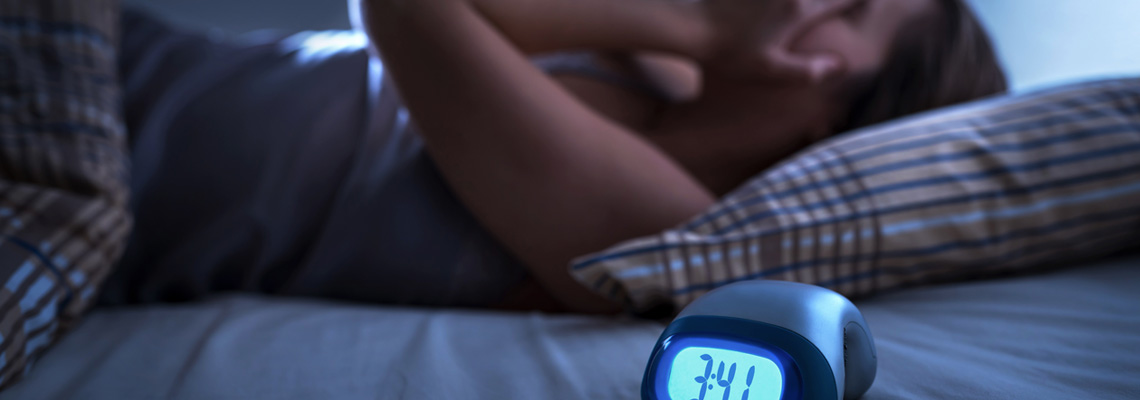Occasional insomnia can be a frustrating experience, leaving us tossing and turning in bed while our minds refuse to shut down. Whether triggered by stress, environmental factors, or other disruptions, sleepless nights can take a toll on our physical and mental well-being. In this article, we will explore the causes of occasional insomnia and provide practical strategies to cope with it. By understanding the nature of insomnia and implementing effective sleep hygiene practices, you can reclaim restful nights and wake up refreshed, ready to face the day ahead.
Understanding Insomnia
Insomnia is a sleep disorder characterized by difficulty falling asleep, staying asleep, or experiencing non-restorative sleep. It can be classified into two main types: acute insomnia, which lasts for a short period of time, usually caused by a specific event or circumstance, and chronic insomnia, which persists for at least three nights a week for three months or more. Various factors can contribute to the development of insomnia, including stress, anxiety, poor sleep habits, medical conditions, medications, and lifestyle choices. Understanding the underlying causes and mechanisms of insomnia is crucial in finding effective coping strategies and improving sleep quality.
Common Causes of Occasional Insomnia
Occasional insomnia can stem from a variety of factors that disrupt our regular sleep patterns. Stress and anxiety are common culprits, as racing thoughts and worry can make it difficult to unwind and fall asleep. Environmental factors such as noise, light, or an uncomfortable sleep environment can also contribute to sleeplessness. Additionally, lifestyle choices like consuming caffeine or engaging in stimulating activities close to bedtime can interfere with our ability to relax and sleep soundly. Other potential causes include jet lag, shift work, certain medications, and underlying medical conditions. Identifying these triggers can help us develop targeted strategies to overcome occasional insomnia and promote better sleep.
Tips for Improving Sleep Hygiene
Developing good sleep hygiene habits can significantly improve our ability to fall asleep and maintain a restful sleep throughout the night. Establishing a consistent sleep schedule by going to bed and waking up at the same time, even on weekends, helps regulate our internal body clock. Creating a relaxing bedtime routine, such as taking a warm bath, reading a book, or practicing relaxation techniques, can signal to our bodies that it's time to unwind. Creating a sleep-friendly environment, with a comfortable mattress, proper temperature, and minimal noise and light, can also enhance sleep quality. Limiting the use of electronic devices before bed and avoiding stimulating substances like caffeine and nicotine are important for promoting better sleep. By incorporating these sleep hygiene practices into our daily routine, and by taking Donormyl 15 mg effervescent tablets, we can improve our chances of enjoying a restful night's sleep.
Relaxation Techniques for Better Sleep
Incorporating relaxation techniques into our bedtime routine can help calm the mind and prepare the body for a restful sleep. Deep breathing exercises, such as diaphragmatic breathing or progressive muscle relaxation, can promote relaxation and reduce anxiety. Practicing mindfulness or meditation before bed can also quiet the mind and alleviate racing thoughts. Engaging in gentle stretching or yoga can release tension from the body, promoting physical relaxation. Additionally, listening to soothing music, using aromatherapy with calming scents like lavender, or trying techniques like guided imagery or visualization can create a peaceful and conducive sleep environment. By incorporating these relaxation techniques into our nightly routine, we can enhance our ability to fall asleep more easily and experience more restorative sleep.
When to Seek Professional Help
While occasional insomnia is common and can often be managed with self-care strategies, there are instances when it is necessary to seek professional help. If your sleeplessness persists for more than a few weeks, significantly impacts your daily functioning, or causes excessive distress, it is advisable to consult a healthcare professional. They can evaluate your sleep patterns, assess any underlying medical or psychological conditions, and provide appropriate guidance and treatment options. Sleep specialists may recommend therapies such as cognitive-behavioral therapy for insomnia (CBT-I) or prescribe medications when necessary. Remember, reaching out for professional help is not a sign of weakness but a proactive step towards finding long-lasting solutions for your sleep troubles.
